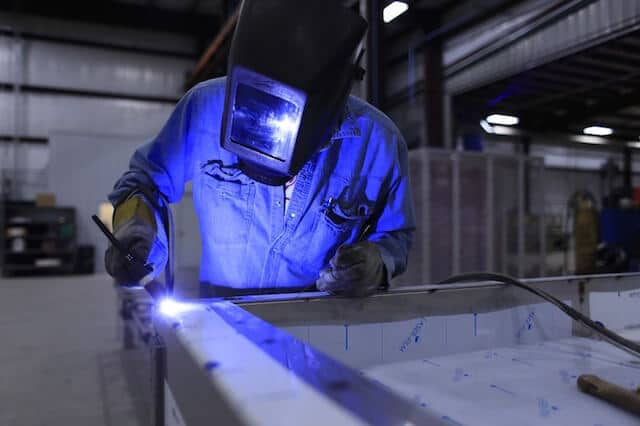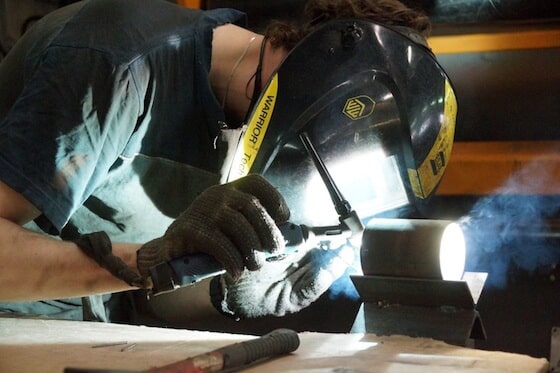An Introduction to Welding
At its core, welding is a process whereby two materials are joined together securely (usually by fusion of the materials). The most popular uses of welding are for fabrication and sculptural processing of metal and plastic.

What is Welding
In the welding process materials are joined by being melted, that’s unlike different low temperature techniques like soldering and brazing where the base metal is not melted.
Welding is a stronger process as the base metal is melted and a weld pool is created by adding a filler material; this cools to form a stronger bond than purely the base material on its own. Welds can be enhanced by using increased heat or pressure.
What are the differences between fabrication and welding?
In essence, welding is a joining process, whereas fabrication is creating or modifying an object. Welding two materials together does not require design, cutting and setting out; welding is a skill which can be used in the fabrication process but not the other way around.
Popular Types of Welding Methods
Common types of welding include:
- Arc welding (Also includes Mig & Tig)
- Oxyfuel gas welding
- Stick Welding
- Resistance welding
- Solid-state welding

What is welding used for?
Welders often have a very varied workload due to the different situation in which welding is required. Welders work in the automotive industry assembling car chassis, in the construction sector fabricating steel structures and in just about every engineering sector that includes metal fabrication. Not all welding companies offer mobile welding services and therefore private individuals and businesses that require welding services at their own destination would need to seek out local mobile welders to complete the job.

The Cost of Welding Services in London
Prices between different welders can vary wildly and the cheapest option isn’t always the best one; like other walks of life, you get what you pay for and welding is no different. With welding however it’s very important that the task will be carried out by a professional (sometimes certified/coded welder), as most of the time work is evolved with responsibilities for safety and durability. For mobile welding service in London you might expect to pay around £80-120 for a small job or higher cost for a larger project.
Some welders would also charge by the hour. In these cases you might expect the cost to start from £60 per hour or £250 for a full day (i.e. 8 hours’ worth of work). Most firms might also offer a discounted daily rates if you need two welders, so as opposed to one you might expect to pay around £400 per day for tow welders.
If you need a mobile welder on an emergency, call out charges tend to start around the £100 mark. These can also double during the night and outside of daily business hours. London are area coverage by Mobile welding London find here.
In Conclusion
Hopefully you feel up to speed with the basics around welding now; our aim with this article is to equip you with enough basic knowledge to make an informed choice when you need to choose a welding service. It’s important that you understand the points raised so you get the right sort of professional for the work that needs to be carried out.
